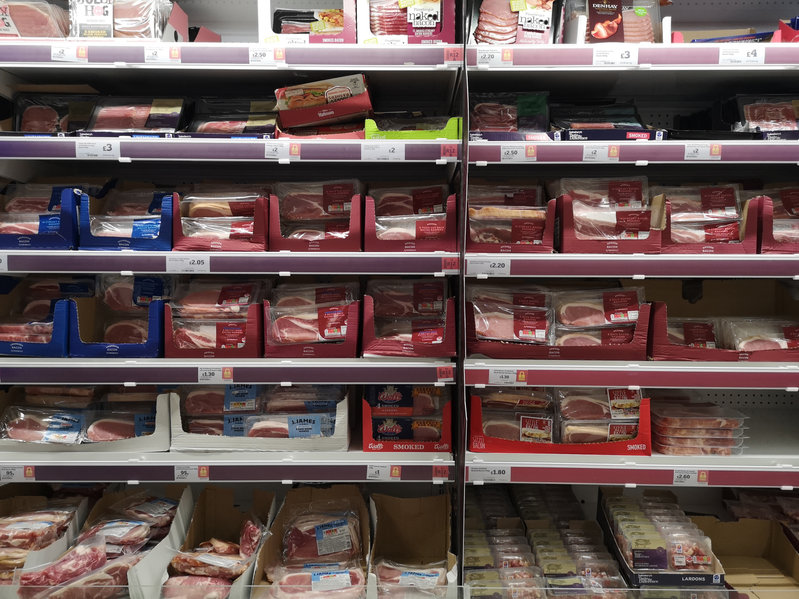UK pig sector faces 'total collapse' if retailers shun price boost

The future of British pork supply is 'at risk' if retailers fail to increase the price they pay to farmers, the pig sector has warned as producers continue to see unprecedented spikes in costs.
The sector, which has already faced more than a year of heavy financial losses due to falling pig prices and a crippling on-farm backlog, is currently "losing tens of thousands of pounds per week".
In a stark warning issued today, the National Pig Association (NPA) said Russia's invasion of Ukraine had prompted a "dramatic leap" in the wheat price.
It now stands in the region of £300 per tonne, compared with around £215 per tonne just a few days ago.
An already desperate situation on UK pig farms had now been "pushed beyond the survival limit for many" since the start of the war in Ukraine, over a fortnight ago.
Pig producers across the country now faced "a serious and imminent risk" of being unable to afford to feed their pigs and keep their businesses going.
To help remedy this, the NPA is calling on retailers to boost the price they pay for pork to "save the British pig industry from total collapse" amid feed cost increases.
The trade body is asking UK supermarket chains to ensure they "pay enough to at least cover pig farmers’ costs of production".
It said this was "essential", not only to help ensure the survival of the British pig sector but, with EU pig numbers falling and prices rapidly rising, to maintain their supply of pork, bacon, sausages, ham and other pigmeat products to consumers.
“We need something to happen very, very soon. Many pig businesses can only last weeks, in some cases days,” one desperate producer said at a meeting of NPA pig farmers earlier this week.
One producer explained how their feed costs increased from £78/pig in April 2021 to £101/pig this month, and are set to soar to £119/pig in April 2022 due to the higher wheat price.
Another said his business’s overall costs of production had risen from 160p/kg in December to over 200p/kg now and are likely to go higher. Others put similar, or higher, figures on current production cost.
Pig producers have already endured a rocky 12 months, losing typically around £25/pig in the first half of 2021, increasing to an unprecedented £39/pig in the final quarter.
This was a result of a ‘perfect storm’ of a falling pig price, combined with record feed costs, compounded by having to feed heavier pigs for longer due to the pig backlog.
A number of pig businesses have quit the industry over the past six months with a lot more cutting back on pig numbers.
The NPA said many businesses had been determined to dig in despite the big losses, in the expectation that the situation would eventually improve.
But the recent spike in the wheat price had now "shattered that prospect", particularly, with soya, energy, fuel and labour costs also increasing.
NPA chairman Rob Mutimer said: “Nobody can survive with wheat at £300/tonne. The situation is now beyond desperate and there is no light at the end of the tunnel.
“We need a large and immediate price increase from retailers. Our current pricing mechanism has failed to keep up with the unprecedented events taking place around the world.
“EU pig prices have shot up over the last week or so, leaving the UK trailing behind. This is not something we ask for lightly, but it is now the only way to save the industry’s bacon."
He added: “Some producers, who have exhausted all financial and emotional reserves over the past year, will be looking ahead to the next few weeks and months and making decisions now.
“In other cases, the decision might be taken out of their hands if they are unable to purchase feed or their banks decide they cannot extend overdrafts any further."
The NPA explained more than £2 per kg was needed to allow producers to break even, which is around 70p/kg above the current price they are being paid.
The association is also reiterating its calls for a financial support package from Defra, as has been provided in other parts of the UK and Europe.








